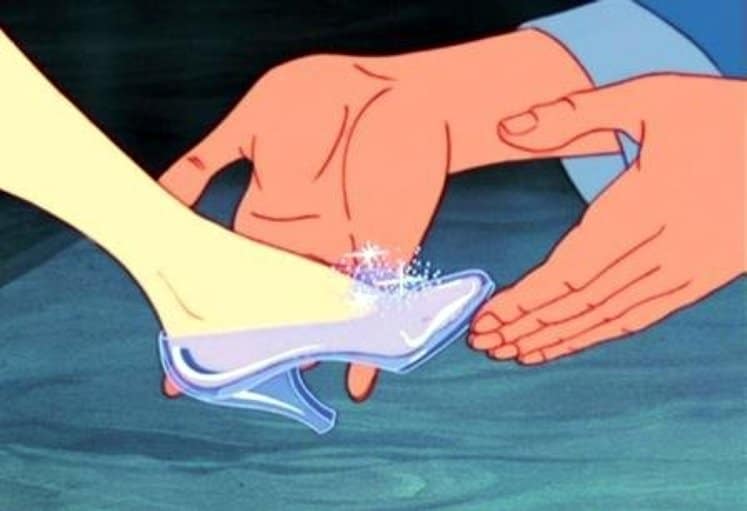It’s the holiday season, a time when Hearing Economics loves to tell stories, speculate, mix metaphors, and downright fantasize about the once and future hearing devices market. This and several future posts will keep the tradition alive, by telling a fast-paced, glittering tale of Siemens and those who wanted her at almost any price, or just wanted to be her.
Other versions contain more detail, fact, and nuance, but this is the condensed, fun, fairy-tale version for Audiologists and others who like quick, sensationalized reads with happy endings.
Start with the Money
As predicted and then confirmed earlier this month, Siemens AG acquiesced to EQT’s bid of $2.67 billion plus earn-out. Probably very few in the industry, perhaps including Siemens AG, expected that rabbit to get pulled out of Siemens’ hat, given its declining market share in recent years and at least one earlier failed sales attempt. It was like Cinderella showing up at the ball and stealing the show.
But Siemens Audiology has always been an expensive date, setting the tone and raising the ante for its rivals when it pulls out its dance card. Siemens controlled 25% of the global hearing aid market in 2006, far ahead of rivals William Demant (18%), Phonak (17%), and GN Resound (14%).
Court Schemes to Topple the Tiara
The high stakes prompted a bold move by Siemens’ smaller but not uglier sisters, Sonova and GN Resound, to merge and grab market share. The largest transaction in the history of the hearing aid industry was made in October 2006, when GN Resound agreed to sell to Sonova for $2.65 billion in 2006 dollars in a debt- and cash-free deal.
Alas, the shoe didn’t fit. Their deal fell through in 2007 when the German Federal Cartel Office (FCO) ruled against it on the basis that it would create an oligopoly in the German hearing aid market. The ruling was overturned in 2010 by Germany’s Federal Court of Justice, but the clock had already struck midnight and Sonova’s money was no longer on the table.
Nevertheless, the ruling freed Siemens and her rivals to once more get their hair done, go to balls, and flirt with new, bigger, richer suitors.
Searching for a Suitable Suitor
Siemens continued to reign supreme in Germany, but fell off its global throne. By 2012, its market share had dropped to 17%, placing it #3 in Big 6 ranking. True to form, Siemens held its head and price high. Once the overturned ruling paved the way for mergers and acquisitions (M&As), it put itself on the market for $2.7 billion in 2010. Private equity and large corporations (e.g., Procter & Gamble) suitors were interested, but M&As were not the thing following the global recession. Bidding never got to the asking price and Siemens withdrew to sit that dance out.
The bloom may have been off the rose, but Siemens continued to attract suitors, including a reported triumvirate of European retailers and an unnamed private investment firm intrigued by the possibility of] about $2.11 billion in projected annual sales. (paraphrased) That didn’t happen but the price stayed high.
Siemens Audiology continued to groom itself and wait for the next suitor. In the spring of this year, parent company Siemens AG announced yet another coming-out ball for Siemens Audiology, along with an ultimatum. Henceforth, Princess Siemens would either get her own apartment and go it alone or she would find a suitable marriage.
The Slipper Fits, at Last
And, as they say, the rest is history. This year’s global economy was a mega-year for global M&As, especially in health and technology. Princess Siemens looked good to her sister companies and to private equity investors. Everybody wanted her.
Siemens stayed calm, adjusted her tiara, and finally found her hero and her asking price when EQT rode into town. She also got a cozy moniker on the financial news wires when Reuters started using her nickname, SAS. No doubt, SAS ❤ EQT plan to move into a bigger and better palace where they will live happily, if not everafter, at least until SAS hits #1 in the global rankings once again.
You just can’t keep a good princess down. Tune in later for a discussion of what made Siemens so special.
feature image courtesy of pinterest








I just wonder how the Ugly Duckling a/k/a Hearx a/k/a HearUSA will fare out. They have been a millstone around the pricess’s neck for years with no hope in sight to become a beautiful cousin. How will moving into anew castle effect this poor duckling? Will the new Queen sell the Duckling off or do the right thing and have it for dinner!!!